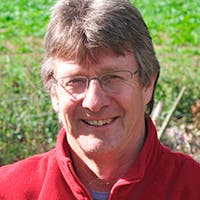Richard Kock is a dedicated wildlife veterinarian, academic, researcher and conservationist. Research interests over 30 years of working with wildife include;
- use of novel anaesthetic agents in wild carnivores and herbivores, improving protocols and intervention technologies to enable safer capture, restraint and handling for treatment, biological sampling for diagnosis, translocation and reintroduction;
- developing efficient and cost effective wildlife epidemiological investigation protocols for infectious disease surveillance and outbreak investigation; and disease risk analysis in a range of wildlife species and at the wildlife and livestock interface;
- morbilliviruses, bacterial and protozoal infection of wildife - studying disease epidemology in various wild herbivore and carnivore communities and investigating their role as potential reservoirs, vectors, indicators for and victims of infection amongst humans, domestic and wild animals;
- finding a balance between natural resource conservation, human, livestock and agricultural development in Africa and Asia to ensure sustained ecosystem services for nutrition security, health and welfare and ecological resilience. Working on One Health concept studies particularly at the remote, rural landscape level of developing and post-conflict communities.
He has current funded research projects and studentships ongoing on saiga antelope disease in Kazakhstan, Pestes des Petits Ruminants virus in wildlife in Africa, bovine tuberculosis in the Queen Elizabeth National Park in Uganda, Village poultry systems in Tanzania and Zambia, ecohealth research on zoonotic diseases in pastoral communities in Tanzania.
In the academic part of his post he is the developer and co-Director of a taught MSc in One Health infectious diseases run jointly between the Royal Veterinary College and the London School of Hygiene and Tropical Diseases and has contributed widely to academic professional development in Europe, Africa and Asia in his disciplinary area.





